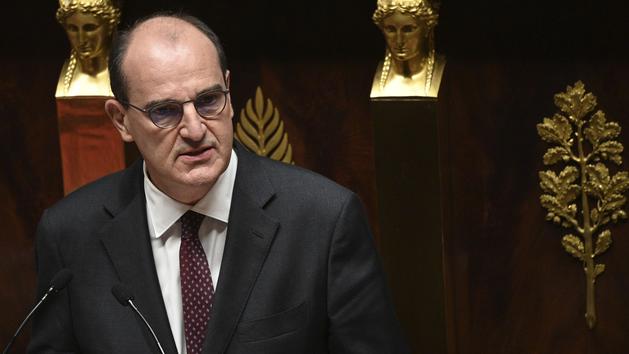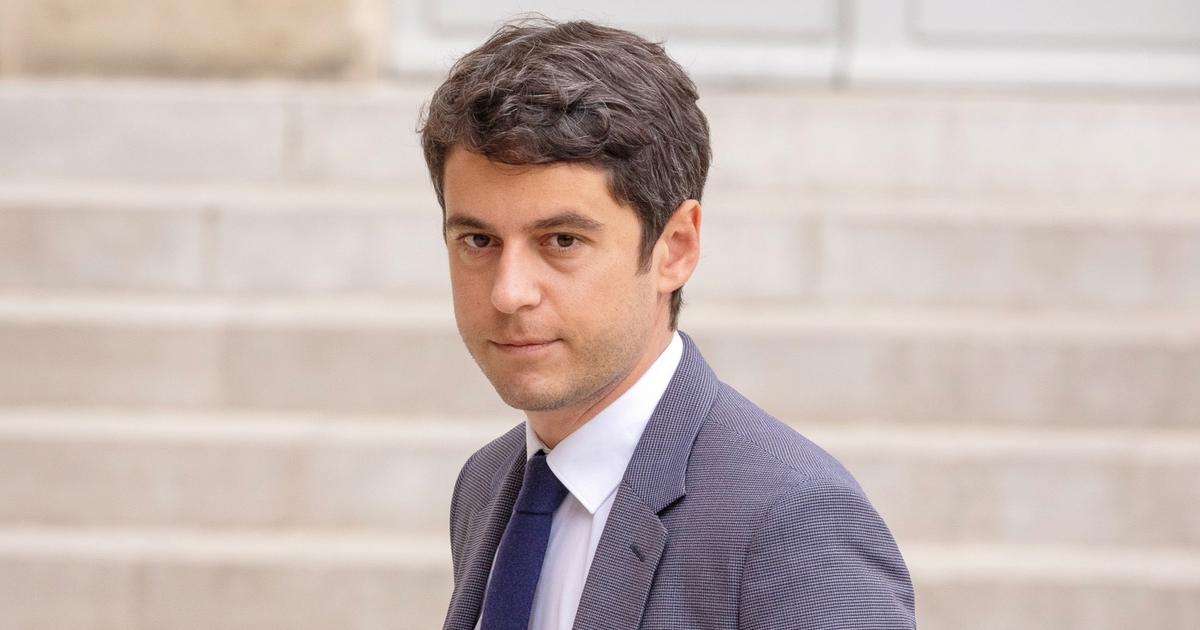Frédéric Micheau is director of the Opinion & Politics Department of Opinion Way and teacher at the Institut d'Études Politiques de Paris. He is the author of Electoral prophecy: polls and voting (Éd. Du Cerf)
FIGAROVOX. - "We have 600 days to build the foundations of the France of tomorrow," said Jean Castex at the end of his general policy speech. Does it dissociate itself from the start of the quinquennium, in your opinion?
Frédéric MICHEAU. - Any speech of general policy of a Prime Minister appointed during his mandate is necessarily in line with the action taken since the presidential election to emphasize the unity of the quinquennium. This imperative of coherence was reinforced by the reduction to five years of the presidential mandate, which would pass off any change of policy as a sign of unpreparedness, of fickleness or of the absence of an ideological line. The new Prime Minister thus logically paid tribute to his predecessor and took over some of the reforms initiated by the government of Edouard Philippe, that of pensions being the most emblematic.
Since the political objective fixed by the President ("the course") remains the same, only the method of government can vary ("the way"). The Prime Minister has amply reaffirmed the two characteristics of the style he claims, that is to say listening to France from the territories and the need for dialogue.
The Prime Minister has amply reaffirmed the two characteristics of the style he claims, that is to say listening to France from the territories and the need for dialogue.He added the desire to go quickly to print his brand. When the mid-term is exceeded, Jean Castex, who presented himself as "the master of clocks" , taking up the formula of Emmanuel Macron, wishes to obtain as soon as possible results visible by the French. The same voluntarism, but with more flamboyance, already animated Dominique de Villepin in 2005 when he launched "the battle for jobs" which he intended to lead from his first "100 days". This speed could however contradict the spirit of concertation and the need for compromise advocated by the current tenant of Matignon.
Jean Castex addressed the chapter of ecology, wishing to make "the French economy, the most decarbonized economy in Europe" . Is it a call to the feet of environmental voters?
It is taking into account a deep expectation of public opinion as a whole, and not only of environmental voters. The previous economic crisis had relegated environmental concerns, which were already alive, to the background, for the sole benefit of resolving socio-economic difficulties and improving purchasing power. The current situation is characterized by a desire by the French to reconcile the recovery of the economy with environmental imperatives, the urgency of which was again underlined by the health crisis, after the heat waves of last year. It is to this wish that the Prime Minister wanted to respond by stating concrete measures and affecting everyday life in order to build "green growth".
Already during the reshuffle, the attribution of the number two place of the government to Barbara Pompili, Minister of the Ecological Transition, constituted a pledge of the attention paid by the executive to these issues. The definition of an ambitious but pragmatic environmental policy is a new strong signal.
It is also a way of responding to members of the majority who pleaded after the last elections for the replacement of a Prime Minister from the right by a personality from the left, with a marked ecological tone. Via the appointment of a former close associate of Nicolas Sarkozy, the President of the Republic preferred to secure his electorate to the right and obscure the presidential horizon of his rivals of the Republicans by appropriating one of their specificities: listening to the field and local elected officials. Erected in imperative necessity, the priority given to the ecological dimension within government action is closing the ranks of the left wing of the macronie, which may have been disappointed with the presidential choice.
The Prime Minister announced the creation of a "youth plan" with the creation of 300,000 career paths and integration contracts and 200,000 additional training places for young people and job seekers in 2021. Emmanuel Macron had nevertheless been very critical with regard to the policy of subsidized contracts implemented by François Hollande. Should this be seen as a turnaround on the part of the Head of State?
It is undoubtedly an evolution that this economic crisis of unprecedented magnitude requires to prevent this generation, already marked by terrorist attacks and which has hardly experienced the strict limitations of confinement, from now on being the victim of mass unemployment. The means are up to the danger. But there is a gigantic unspoken at the center of this burst of measures: how will all these devices be financed, while the public accounts are experiencing unprecedented deterioration and the executive has repeatedly announced its refusal to operate fiscal leverage? Will future generations have to pay for the Covid-19 generation?
This is undoubtedly an evolution that this economic crisis of unprecedented magnitude requires to prevent this generation from being the victim of mass unemployment.At the political level, these economic measures aimed at young people also aim not to push into the arms of the populists an electoral segment which massively abstained during the last municipal elections. Should we remind that in the first round of the presidential election, according to the polling day poll carried out by OpinionWay, Emmanuel Macron had won the votes of only 21.6% of young people aged 18 to 34, a lot less than Jean-Luc Mélenchon (24.6%) and Marine Le Pen (25.7%)?
Prime Minister promises "firm response" to "ultra-violent minorities" . Should we hear the legacy of Nicolas Sarkozy?
It should be read more generally the Prime Minister's adherence to classic republican grammar, which considers that security is the guarantee of freedom. Recently, it was the credo of Nicolas Sarkozy, but also Jean-Pierre Chevènement or Manuel Valls. The proclaimed will to reign order and make troublemakers knee down sign of a will to take back control of security policy after the erratic management of the first part of the quinquennium. The inadequacies of maintaining order during the Yellow Vests crisis and during social movements against pension reform, the question of police violence and accusations of racism within the police: all subjects that call for a reorganization of the Ministry of the Interior.
The Prime Minister adheres to the classic republican grammar, which considers that security is the guarantor of freedom.Another subject that will probably be carried by Place Beauvau, the announcement of a bill "against separatism" gives flesh to the Prime Minister's attachment to secularism. The vigorous struggle against radicalization and communitarianism enabled him to firmly decline royal themes, but also to lay the first stones of his ambition to "reconcile France" .









